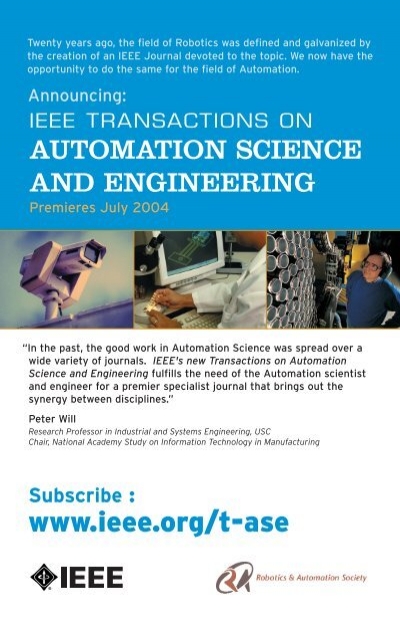Partial Identification of Coupled Matrices for Stochastic Hybrid Multi-Layer Delayed Networks
IF 6.4
2区 计算机科学
Q1 AUTOMATION & CONTROL SYSTEMS
IEEE Transactions on Automation Science and Engineering
Pub Date : 2024-12-17
DOI:10.1109/TASE.2024.3515213
引用次数: 0
Abstract
This paper focuses on partial identification problems of coupled matrices for stochastic hybrid multi-layer delayed networks with inter-layer and intra-layer couplings and Markovian switching. The main approach is to combine Lyapunov method, Kirchhoff’s matrix-tree theorem and stochastic analysis. By pinning control technique, partial identification criterion is got. As a special case, the whole identification criterion is also derived. At last, three numerical examples of classical Lü and Lorenz systems are provided to demonstrate the validity of the presented results. Especially the impact of Markovian switching on partial topology identification is discussed. Note to Practitioners—This paper was motivated by existing results on synchronization of multi-layer complex network with stochastic perturbation. The existing results mainly focus on exponential synchronization or asymptotic synchronization based on known coupled matrices of networks. In this paper, the coupled matrices are unknown, the drive-response systems can achieve the partial synchronization with probability one via pinning controller. Furthermore, combining with stochastic version of the LaSalle theorem, the partial identification of coupled matrices criterion has been obtained. It should be noted that the Markovian switching and time delay in this work play an important role in the identification.随机混合多层延迟网络耦合矩阵的部分辨识
研究了具有层间和层内耦合和马尔可夫切换的随机混合多层延迟网络的耦合矩阵的部分辨识问题。主要方法是将李雅普诺夫方法、基尔霍夫矩阵树定理和随机分析相结合。通过钉住控制技术,得到了部分辨识准则。作为一种特殊情况,导出了整个识别准则。最后,给出了三个经典Lü和Lorenz系统的数值算例,验证了所得结果的有效性。特别讨论了马尔可夫切换对部分拓扑识别的影响。从业人员注意:本文的灵感来自于已有的关于随机扰动下多层复杂网络同步的研究结果。现有的研究成果主要集中在基于已知网络耦合矩阵的指数同步或渐近同步。在耦合矩阵未知的情况下,驱动响应系统可以通过固定控制器实现概率为1的部分同步。结合随机版本的LaSalle定理,得到了耦合矩阵的部分辨识准则。值得注意的是,在这项工作中,马尔可夫切换和时间延迟在识别中起着重要作用。
本文章由计算机程序翻译,如有差异,请以英文原文为准。
求助全文
约1分钟内获得全文
求助全文
来源期刊

IEEE Transactions on Automation Science and Engineering
工程技术-自动化与控制系统
CiteScore
12.50
自引率
14.30%
发文量
404
审稿时长
3.0 months
期刊介绍:
The IEEE Transactions on Automation Science and Engineering (T-ASE) publishes fundamental papers on Automation, emphasizing scientific results that advance efficiency, quality, productivity, and reliability. T-ASE encourages interdisciplinary approaches from computer science, control systems, electrical engineering, mathematics, mechanical engineering, operations research, and other fields. T-ASE welcomes results relevant to industries such as agriculture, biotechnology, healthcare, home automation, maintenance, manufacturing, pharmaceuticals, retail, security, service, supply chains, and transportation. T-ASE addresses a research community willing to integrate knowledge across disciplines and industries. For this purpose, each paper includes a Note to Practitioners that summarizes how its results can be applied or how they might be extended to apply in practice.
 求助内容:
求助内容: 应助结果提醒方式:
应助结果提醒方式:


